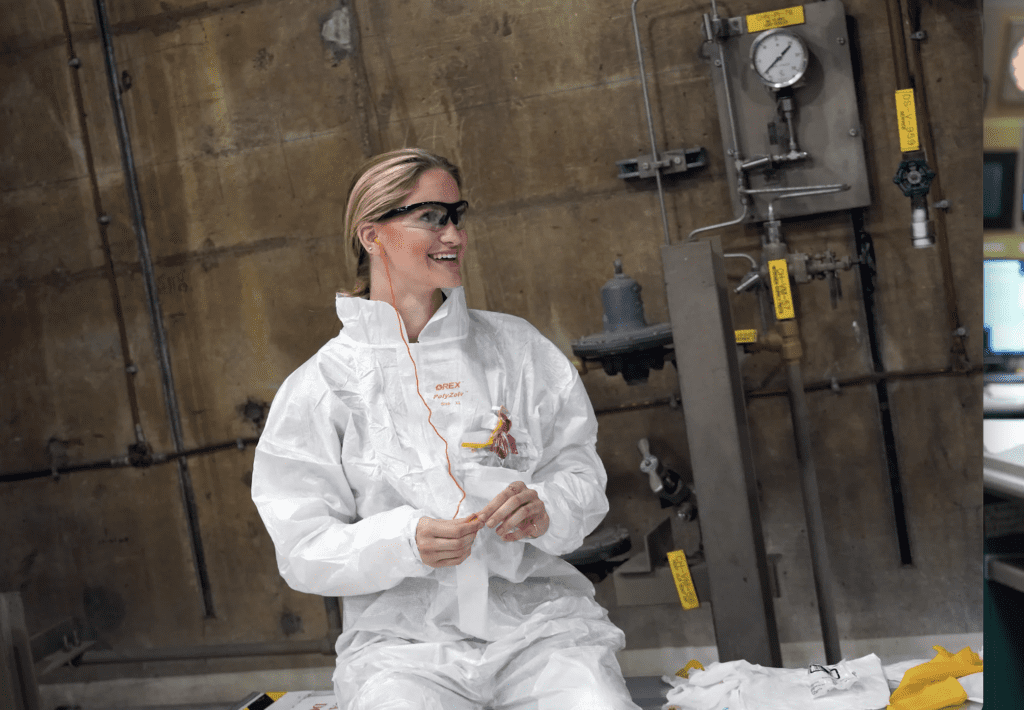The POWER Interview: Miss America Talks Importance of Nuclear Power
The U.S. nuclear power industry has an ally with a unique platform to spread the sector’s message of providing reliable, clean electricity.
Meet Grace Stanke. She’s not just a student at the University of Wisconsin-Madison working on the final stages of a degree in nuclear engineering. She is also Miss America 2023.
“A lot of what I’m focusing on is messaging,” said Stanke, 21, in an interview with POWER. Stanke, who is speaking at the American Nuclear Society’s conference in Indianapolis, Indiana, on June 12, said her message to attendees at the ANS event will be how to talk about the benefits of nuclear power technology. “They already know nuclear science,” she said. “I will talk about how to be an advocate, how to communicate the importance of nuclear power effectively.”

Stanke is spending her year as Miss America raising awareness about nuclear power and zero-carbon energy sources. “My main focus is nuclear because it has the biggest barriers to overcome,” she said, citing a need for more public and political support of nuclear power. “We have the technology and the science figured out to create a clean energy portfolio,” including the use of renewables such as solar and wind power, but “there’s an innate fear of nuclear,” something she said has endured because the nuclear power industry has not done the best job of talking about the technology’s benefits.
Stanke noted that her initiative of “Clean energy, cleaner future” is to help change the perception of nuclear power, and increase public and political awareness of the sector’s benefits—not only the production of clean energy, but also advancements in medicine.
“The nuclear scientists are all humans too,” Stanke said. “I’m bringing together two worlds that would maybe otherwise have never been seen together.”
Stanke has practical experience in nuclear power, and worked on nuclear fusion research in the HSX stellarator facility at UW-Madison. The HSX stellarator is one of three magnetic fusion experiments at the university, which is known for its plasma and fusion research program. Stanke also has been president of the university’s chapter of the American Nuclear Society.
She also worked for three semesters in a co-op with Constellation, the electric and natural gas utility that serves customers in 16 states and the District of Columbia. Constellation operates more than a dozen nuclear power plants.
Stanke, an accomplished violinist who won the title of Miss Wisconsin in June 2022 to advance to the Miss America pageant, has spoken to students about nuclear energy, and also has been a keynote speaker at nuclear power conferences. Stanke in April toured the Palo Verde Generating Station in Arizona, the nation’s largest nuclear power plant and largest power generation facility in terms of capacity. She followed that visit with a trip to Plant Vogtle in Georgia, getting a first-hand look at the continuing construction of two new AP1000 reactors at that site that will join two existing units.

“It’s fun to have the opportunity to talk about nuclear power,” she said, noting she was in the control room at Vogtle in May when Unit 3 hit 75% power output; that reactor recently hit the 100% power output milestone. “It’s neat to be a part of that. Those moments are important and it’s really incredible to see it happening.”
She said she will continue to use the Miss America platform to speak to companies that want to have nuclear power as part of their energy portfolio.
“It’s time we start focusing on how we can really, really incorporate nuclear into our power system,” Stanke said. “It does truly take a team. It takes hundreds of thousands of people to make these things go.”
Stanke recently provided POWER with more insight into her support of nuclear energy.
POWER: What sparked your interest in nuclear power?
Stanke: My interest in nuclear began when trying to figure out what I wanted to do with my life. I was fortunate to know I always wanted to go into engineering because of how I grew up, seeing my dad’s work as a civil engineer.
When it came to touring colleges, I had narrowed down the engineering options to nuclear engineering or aerospace engineering. I was having a conversation with my dad about which one he thought I should go into and he said “Nuclear isn’t a good option—there is no future there.” When a 16-year-old daughter hears her dad say ‘No,’ well, you can guess what happened!
While I flipped my hair over my shoulder and pursued nuclear when I started college, what kept me in it was learning about how incredible this field is. From curing my dad’s cancer twice, to powering 20% of America, to helping with agriculture which is so important in my home state of Wisconsin … it really does feel like nuclear does it all.

POWER: Can the U.S. meet its climate goals without the use of zero-emission nuclear power?
Stanke: No. Nuclear power is a zero-carbon form of producing electricity that does not depend on the outside environment, and runs 95% of the time. This makes it the most reliable form of energy production, and is a great way to produce a baseload (always needed) source of power.
POWER: How important is nuclear power to maintaining the reliability and resiliency of the U.S. power grid?
Stanke: Nuclear is essential to create reliable energy. Nuclear power is safe, effective, and reliable. It produces massive amounts of power using a small amount of land, and a small amount of waste at the end of the day. One person’s entire life if powered by nuclear energy would only produce enough waste to fill a soda can.
POWER: What did you learn when you toured the Palo Verde nuclear plant, and what do you think about the expansion at Plant Vogtle nearing completion?
Stanke: Neither of these plants were my first time seeing a nuclear power plant, but it is incredible to see how different each and every plant is, yet how strikingly similar they all are. Both Palo Verde and Vogtle are prepared to serve their communities in the best way possible.

POWER: Do you have thoughts about how to solve the problem of nuclear waste (spent nuclear fuel)?
Stanke: Spent fuel has already been solved. Reprocessing is an option: 90% of nuclear fuel is reusable. In France, 96% of spent fuel is reprocessed and is able to be reused while the other 4% is vitrified and stored. Even if America didn’t reprocess, we still have storage facilities well figured out. Waste Isolation Pilot Plant (WIPP), in New Mexico, is a perfect example of a working storage facility that was designed for a variety of different types of waste. WIPP was only allowed to store transuranic waste. My thoughts about solving the ‘problem’ is that the problem is not a scientific issue—it’s a politics issue.

POWER: Should government or the private sector, or both, take the lead role in supporting the U.S. nuclear power industry?
Stanke: Both. Our current nuclear portfolio is a combination of both, and I don’t see why that can’t continue. As a young person growing up in this world, it feels like government and private sectors are always pitted against one another, yet I do feel it’s possible for the two parties to work together with time, patience, and a willingness to listen. This extends beyond just the nuclear power industry.
POWER: How do you plan to change public perception about nuclear power?
Stanke: Changing public perception starts with one major hurdle: the misconception. Discussing the myths surrounding nuclear power on a large-scale basis is one of the things I do, including discussing spent fuel, safety, and the cost. Additionally, nuclear has always been seen as this hidden, unknown form of science. Letting people know where it exists in their daily lives (smoke detectors, bananas, MRI machines, etc.) is a great way for people to become more supportive around nuclear power.
POWER: When you talk to young students about nuclear power, what do you emphasize?
Stanke: Nuclear power is safe, effective, and reliable. That is the main message that I want everyone to walk away with.
—Darrell Proctor is a senior associate editor for POWER (@POWERmagazine).